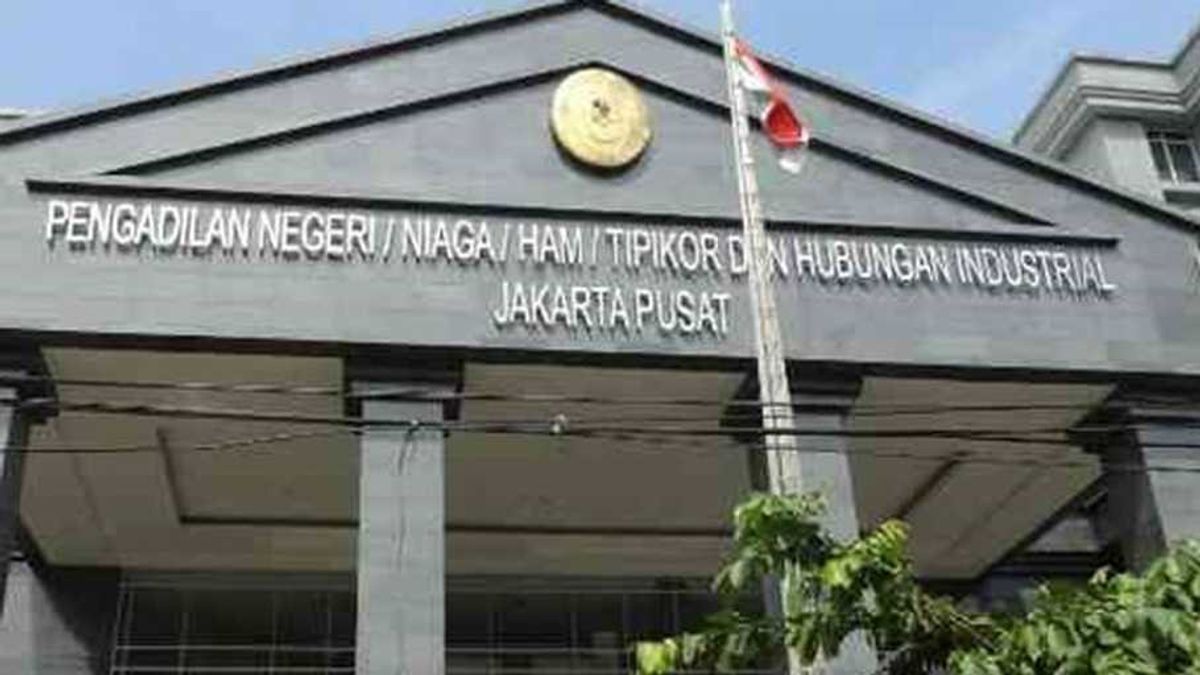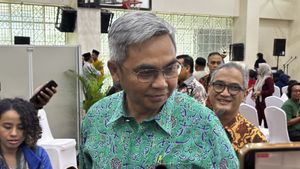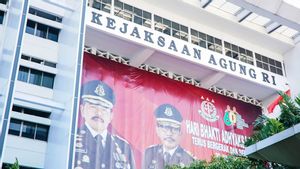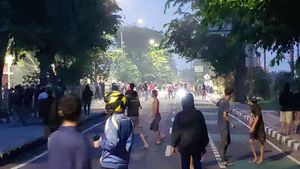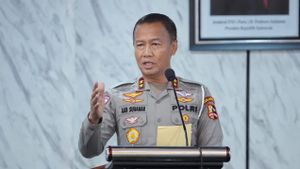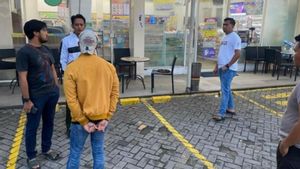JAKARTA - Five defendants in the alleged corruption case in the Export Agreement (PE) Crude Palm Oil (CPO) filed a memorandum of objection or exception on charges by the public prosecutor (JPU) of the Central Jakarta High Prosecutor's Office.
The five defendants are the former Director General of Foreign Trade of the Ministry of Trade, Indra Sari Wisnu Wardhana; policy advisor or analyst at the Independent Research & Advisory of Indonesia (IRAI) as well as the Coordinating Minister for Economic Affairs Assistance Team, Weibinanto Halimdjati alias Lin Che Wei.
Furthermore, the Commissioner of PT Wilmar Nabati Indonesia, Master Palulian Tumanggor; Senior Manager of Corporate Affairs of PT. Victorindo Alam Lestari, Stanley Ma; and General Manager (GM) of the General Affairs Section of PT Musim Mas, Pierre Togar Sitanggang.
"That Wilmar Group actually suffered losses and became a victim of policy licensing and the Ministry of Trade's program, namely a program to provide simple packaged cooking oil for the needs of the community," said Juniver Girsang, the lawyer for the defendant Master Parulian Tumanggor, at the Central Jakarta Corruption Court (Tipikor), quoted from Antara, Tuesday 6 September.
According to Juniver, his client is not the cause of the shortage of cooking oil.
"The defendant is not an exporter, the recipient of the CPO export approval and its derivative products. The defendant is not the party who applied for an export permit. The defendant never received an assignment from PT Wilmar Nabati Indonesia, PT Multimas Nabati Asahan, PT Sinar Alam Permai, PT Multi Nabati Sulawesi, and PT Wilmar Bioenergy Indonesia to take care of the application for export permits for the five companies at the Ministry of Trade," he said.
Meanwhile, Maqdir Ismail, as Weibianto Hakimdjati's attorney alias Lin Che Wei, said that his client's actions were more appropriate to comply with the Trade Law, not the Corruption Eradication Law, because what was done was related to the provision of CPO export facilities.
"Given that any or all violations in the trade sector originating from the Trade Law are not criminal acts of corruption, the Attorney General's Office does not have the authority to carry out investigations and investigations," said Maqdir.
The Attorney General's Office, according to Maqdir, is also not sure about the amount of state financial losses and/or the country's economy.
"Therefore, using a different amount of loss in each indictment to five defendants. There is an inconsistency between the loss to state finances which is being argued as a result of the actions of Master Parulian Tumanggor, Pierre Togar Sitanggang and Stanley MA with unauthorized profits obtained by three company groups," added Maqdir.
Meanwhile, Jefri Moses, legal adviser to the former Director General of Foreign Trade, Indra Sari Wisnu Wardhana, claimed that his client had not committed any acts outside his authority as Director General.
"Until now, there is no implementing regulation that gives authority to the Directorate General of Foreign Trade to carry out physical verification or in the field to examine the truth of the distribution/distribution of DMOs in the country, because this is not the authority of the Directorate General of Foreign Trade," said Jefri.
According to Jefri, the companies that apply for export approval have not exported all CPOs and their derivative products issued by the Export Agreement by Indra Sari.
In other words, the company has not used all the quotas or export quotas that have been approved because the Export Agreement is valid for a period of six months.
"The public prosecutor also did not clearly and carefully explain whether there had been any state money that had been issued or reduced due to the issuance of Export Approval in question in the Dakwaan Letter, so that the state financial losses charged were not real and definite," said Jefri.
The indictment states that the three groups of companies should supply cooking oil for domestic needs (DMO) in the amount of 20 percent of the total CPO exports but not carried out, resulting in a total state financial loss of Rp6.047 trillion and the state economy of Rp12.312 trillion.
For his actions, the five defendants are threatened with criminal sanctions from Article 2 paragraph (1) or Article 3 in conjunction with Article 18 of Law No. 31 of 1999 as amended by Law No. 20 of 2001 concerning the Eradication of Criminal Acts of Corruption jo. Article 55 paragraph (1) of the 1st Criminal Code.
The English, Chinese, Japanese, Arabic, and French versions are automatically generated by the AI. So there may still be inaccuracies in translating, please always see Indonesian as our main language. (system supported by DigitalSiber.id)
